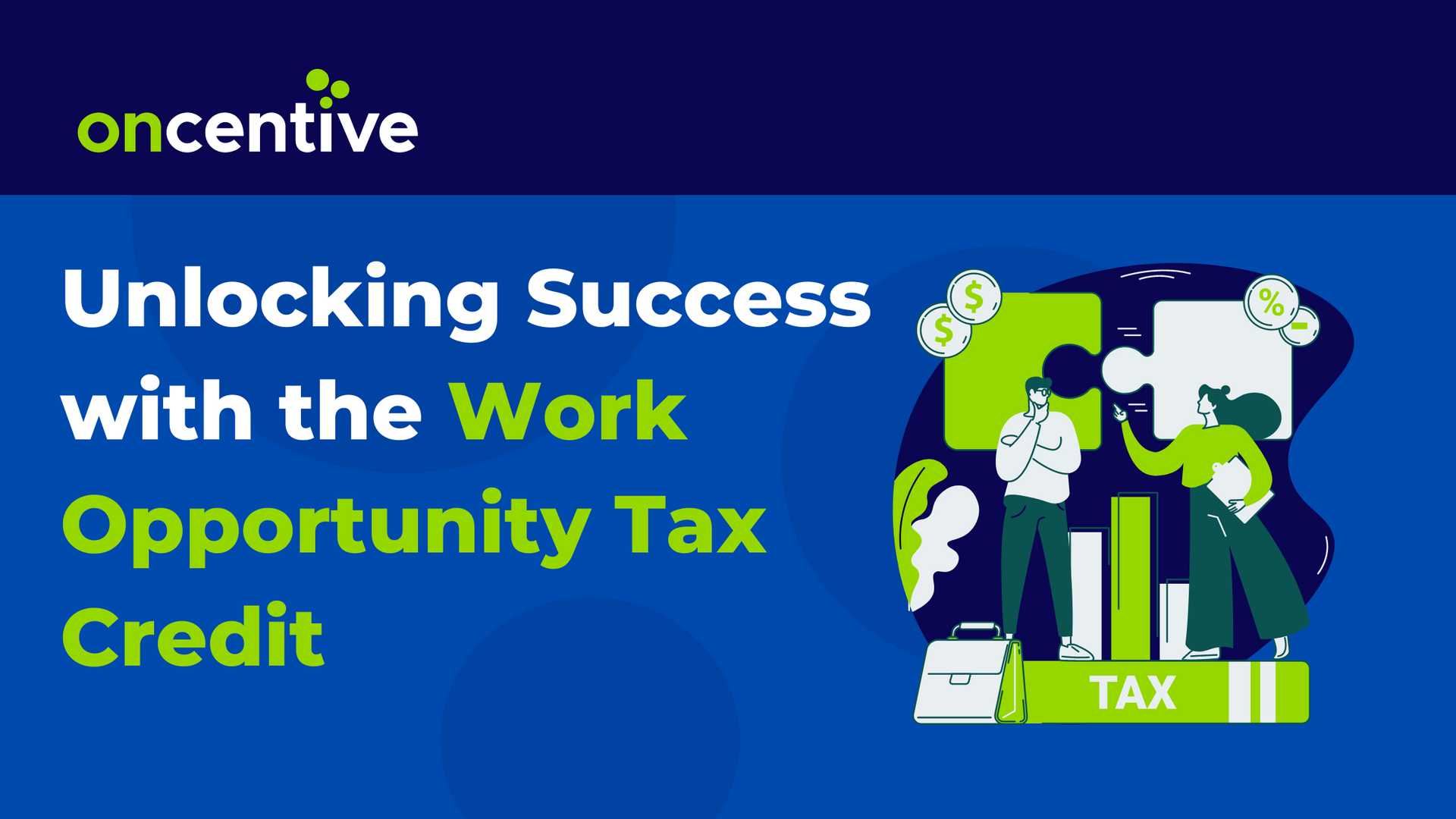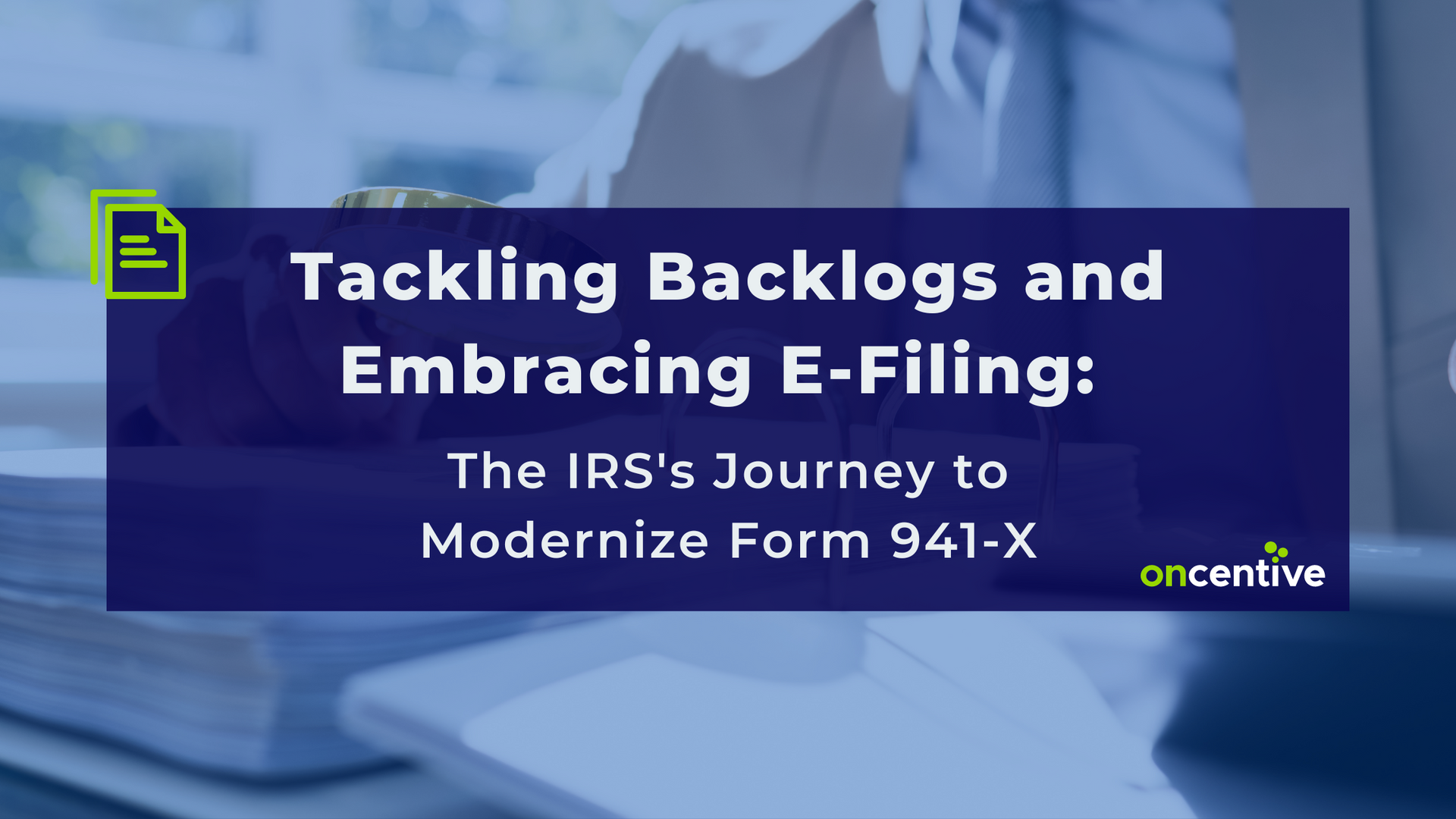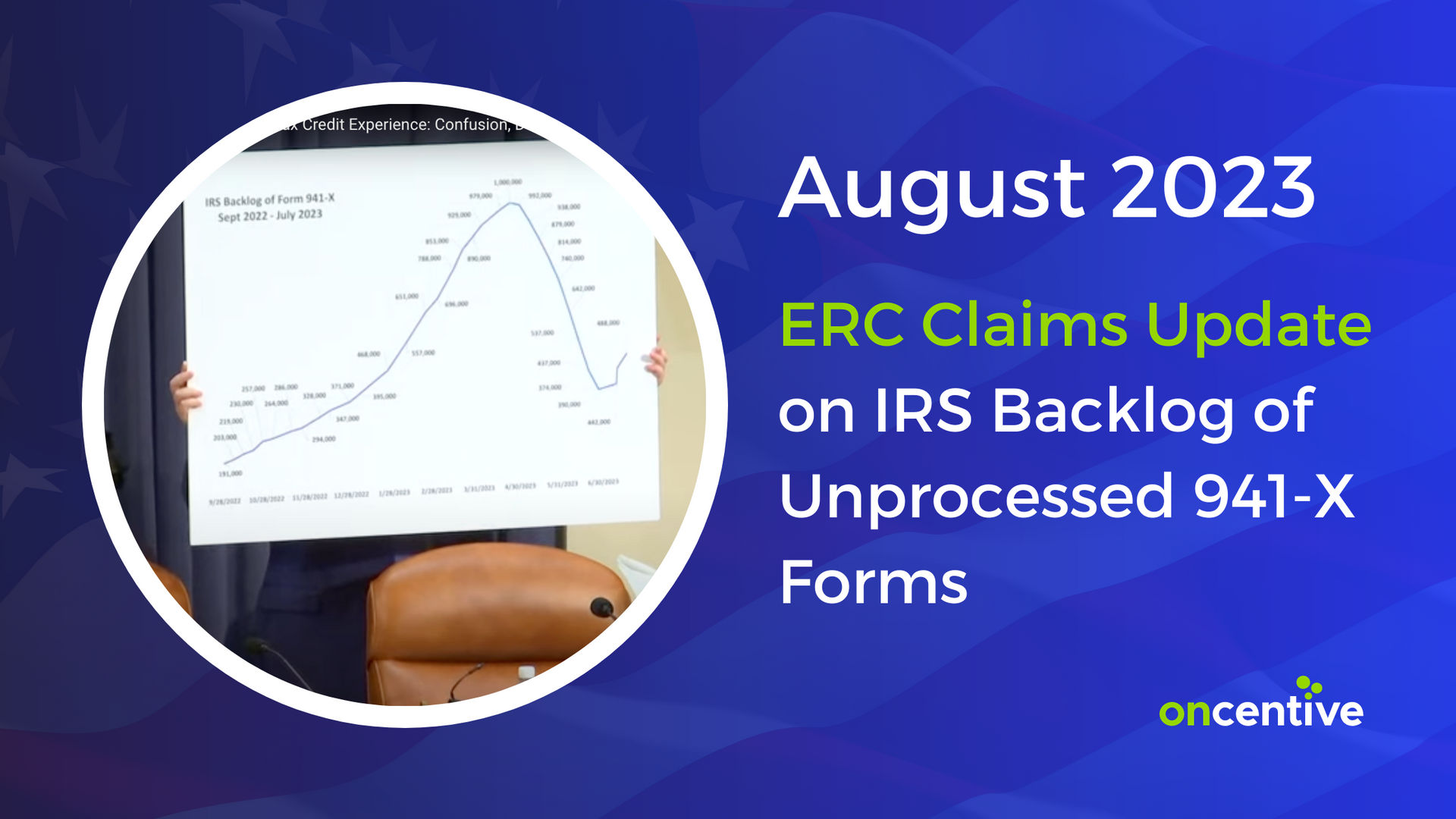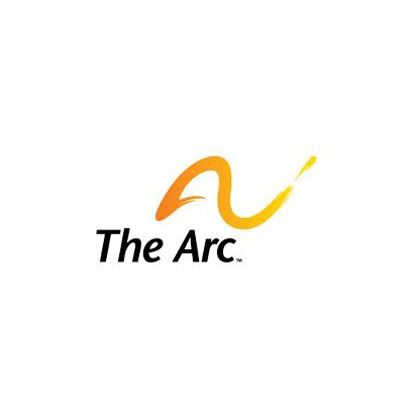A Comprehensive Guide to Boosting Your Small Business's Bottom Line with Tax Credits, Part 2

Navigating the intricate landscape of tax credits is essential for unlocking substantial savings for your business. In our last blog post, we established the fundamental difference between tax credits and deductions, highlighting the pivotal role they play in shaping your financial strategy.
To learn more about these differences, read the blog post “A Comprehensive Guide to Boosting Your Bottom Line with Tax Credits, Part 1”
Now that you have this foundational knowledge, let's explore specific tax credits that can be leveraged by your small business.
Work Opportunity Tax Credit (WOTC)
In the realm of federal income tax credits, the Work Opportunity Tax Credit (WOTC) stands tall, designed to empower businesses that prioritize diversity and inclusion. This general business credit encourages employers to foster equitable employment opportunities, particularly within targeted demographic groups.
WOTC extends its support to various demographics, including:
- Qualified veterans,
- Temporary Assistance for Needy Families (TANF) recipients,
- Supplemental Nutrition Assistance Program (SNAP) recipients,
- Vocational rehabilitation referrals,
- Long-term unemployed,
- Ex-felons,
- Summer youth employees,
- Supplemental security income recipients, and
- Designated community residents living in Empowerment Zones or Rural Renewal Counties.
WOTC serves to directly decrease a business' effective tax liability by permanently reducing income tax. Employers can leverage WOTC by certifying eligible new hires within the initial 28 days of their employment. In cases where the full credit amount couldn't be utilized due to tax liability limitations, employers can opt to carry back 1 year or forward up to 20 years.
To capitalize on these valuable credits, businesses need to submit Form 8850, the Pre-Screening Notice and Certification Request, and the completed supporting qualification form to the appropriate state workforce agency within the initial 28 days of a new employee's start date.
It's noteworthy that the responsibility for managing the WOTC administrative workflow often falls within the purview of a company's HR department rather than its accounting team. This emphasizes the importance of HR teams in unlocking the full potential of WOTC for businesses. The most successful programs engage both the tax or finance teams collaborating as growth strategies are implemented.
Completing an electronic smart survey initiates the eligibility determination process for WOTC. Administered at the federal level but determined by each state's workforce agency (SWA), this program holds the potential for substantial tax credits.
Businesses have the chance to earn between $1,200 and $9,600 for every eligible new hire, making WOTC a powerful tool in fostering diverse talent and reaping financial benefits. Annually, businesses claim over one billion dollars in tax credits under the impactful WOTC program.
Research and Development (R&D) Tax Credits
Elevating the potential for innovation within the business landscape, Research and Development (R&D) Tax Credits emerge as a catalyst for small businesses striving to make breakthroughs in their respective industries.
Designed to fuel experimentation, technological advancement, and the pursuit of novel solutions, R&D Tax Credits present a compelling opportunity for businesses committed to pushing the boundaries of what's possible.
Small businesses engaging in activities that enhance or create new products, processes, or services may find themselves eligible for R&D Tax Credits. This tax credit extends beyond traditional laboratories, encompassing a wide range of industries, from manufacturing and technology to healthcare and beyond.
By leveraging R&D Tax Credits, small businesses not only recoup a portion of their qualified research expenses but also gain a financial edge that propels them toward greater competitiveness and success.
The beauty of R&D Tax Credits lies in their versatility, offering businesses the financial freedom to reinvest in their ventures, enhance their research capabilities, and ultimately contribute to industry-wide progress.
As small businesses navigate the evolving landscape of innovation, R&D Tax Credits stand as a testament to the value placed on creativity, problem-solving, and the relentless pursuit of improvement. For small businesses with a penchant for exploration and a commitment to pioneering solutions, the R&D Tax Credit is a beacon lighting the way to a future defined by ingenuity and advancement.
Solar Investment Tax Credit (ITC)
The U.S. Department of the Treasury and Internal Revenue Service have recently issued guidance on the Investment Tax Credit (ITC) under Section 48 of the Internal Revenue Code, aiming to bolster the investment surge driven by President Biden's Inflation Reduction Act.
Released on November 17, 2023, the guidance offers crucial clarity for businesses involved in clean energy projects, providing certainty for investment decisions. Deputy Secretary of the Treasury Wally Adeyemo emphasized the importance of this clarity in advancing projects, such as offshore wind and battery storage, as well as supporting small-scale initiatives connecting to the grid.
The proposed rules cover eligibility criteria for various equipment and costs, aligning with the Act's objectives to spur clean energy development, create jobs, and enhance energy security.
This regulatory development aligns with the broader context of sustainability and clean energy solutions. Small businesses can now harness the transformative power of solar technology while enjoying substantial financial benefits through the Solar Investment Tax Credit (ITC), also referred to as the Solar Tax Credit. This federal incentive proves indispensable for businesses dedicated to environmental responsibility and aspiring to leverage the potential of solar energy.
The Solar ITC provides small businesses with a tax credit equal to a percentage of their qualified expenditures on eligible solar energy property. This includes solar panels, solar water heating equipment, and solar-powered systems integrated into the business infrastructure. As businesses increasingly prioritize eco-friendly practices, the Solar ITC becomes a crucial tool for realizing sustainable energy goals.
For small businesses venturing into solar initiatives, the ITC serves as a catalyst, driving down the cost of solar installations and encouraging a transition to renewable energy sources. The financial relief offered by the tax credit empowers small businesses to embrace solar solutions, reduce their carbon footprint, and contribute to a cleaner, more sustainable future.
These are just a few of the lucrative tax credits your small business can utilize. In our
next blog post, we’ll discuss healthcare, retirement, and Federal Empowerment Zone credits that can help your small business boost its bottom line.
OnCentive Can Help You Unlock Small Business Tax Savings
To uncover the full spectrum of income tax credits and state-specific opportunities, businesses are encouraged to engage the assistance of a consultant to coordinate with state revenue departments, economic development agencies, or specialized consultants familiar with the intricacies of local tax incentives, like OnCentive.
Staying informed about available credits can empower small businesses to make strategic decisions that positively impact their bottom line while contributing to the economic prosperity of the communities they serve.
Have Questions or Need More Information?

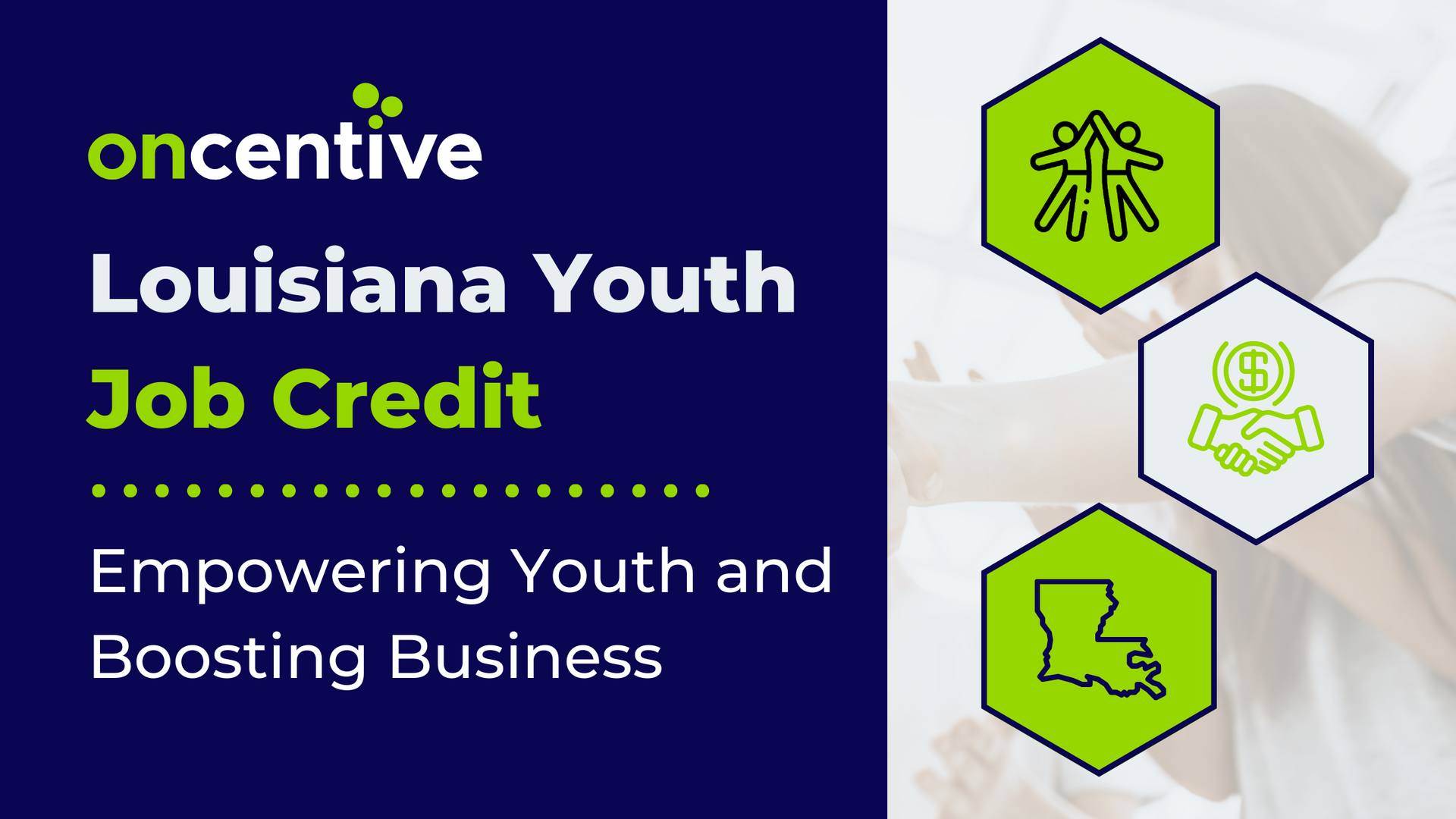
 <script type=" text=""/>
<script type=" text=""/>





